If you follow PricePlow, you've likely tried a carnitine-based supplement in the past. We love L-carnitine supplements -- there's an incredible amount of data supporting them for metabolism, performance, recovery, and overall health. But sometimes we're looking for a different way to approach a situation, want different effects, or are simply looking for a smaller dosage.
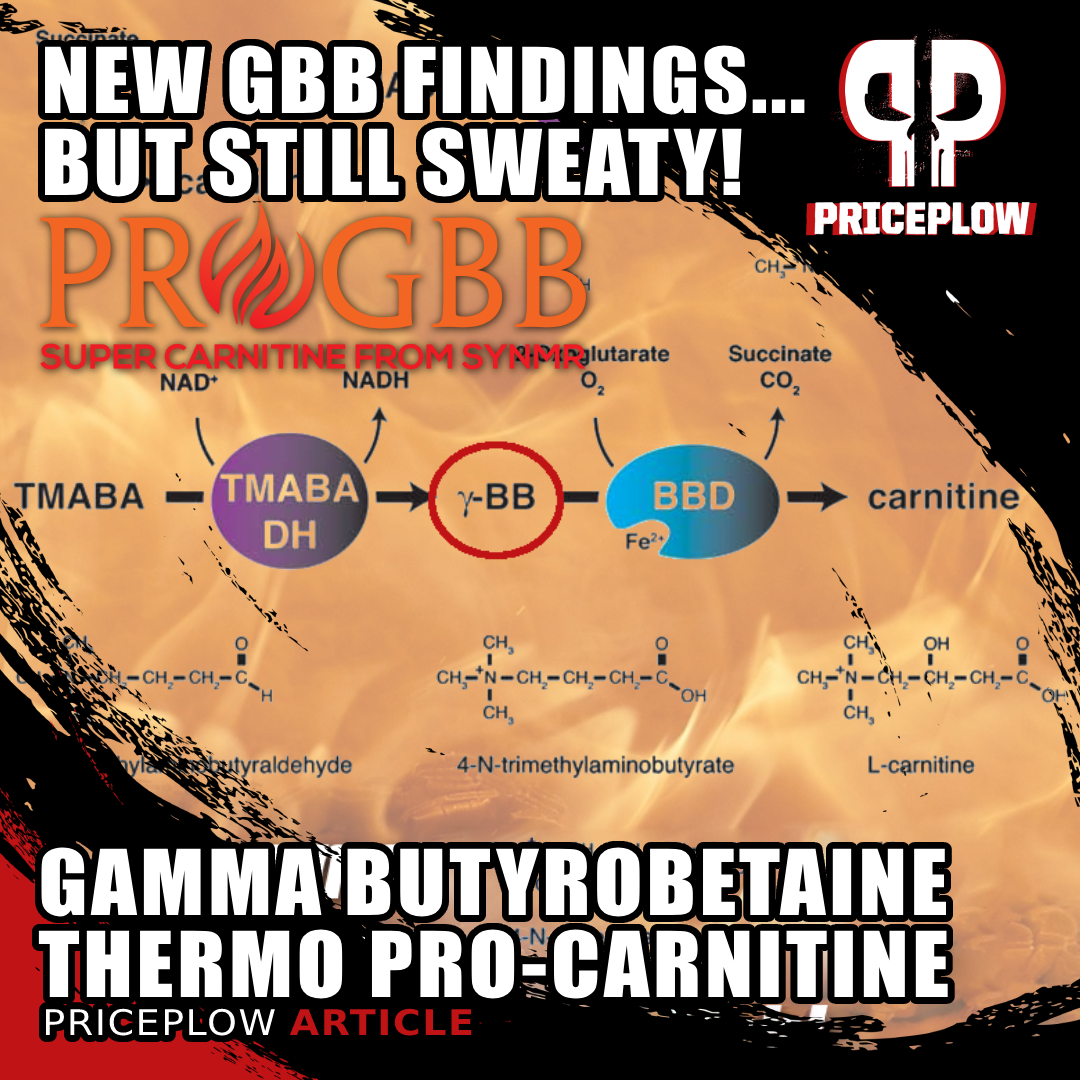
GBB Supplements add to the carnitine pool by increasing the reagent -- GBB -- which goes on to make more carnitine if your body needs it! But the experiential part is its thermogenic effect that makes many users sweat more during workouts!
That's what we get from GBB, short for gamma-butyrobetaine, the new kid on the carnitine block that made major waves in the dietary supplement industry in the 2010s and still continues to thrive in the weight loss space to this day.
The short goes like this: GBB is a carnitine precursor, helping to support the body's own carnitine production, supporting many of carnitine's functional benefits. But beyond that, it's well known to leave you sweating more than anything you've ever felt.
Dive into this post to find out if this pro-carnitine ingredient is right for you, and what's happening when you take it!
This article has been updated in 2024 to include new research that's been published surrounding the ingredient. Our conclusions remain the same: it's a novel way to boost carnitine content at lower doses, but with its well-known thermogenic effect!
GBB Supplement Summary
GBB, or Gamma-Butyrobetaine ethyl ester HCl, is the molecule that your body converts into L-Carnitine when naturally producing its own carnitine.
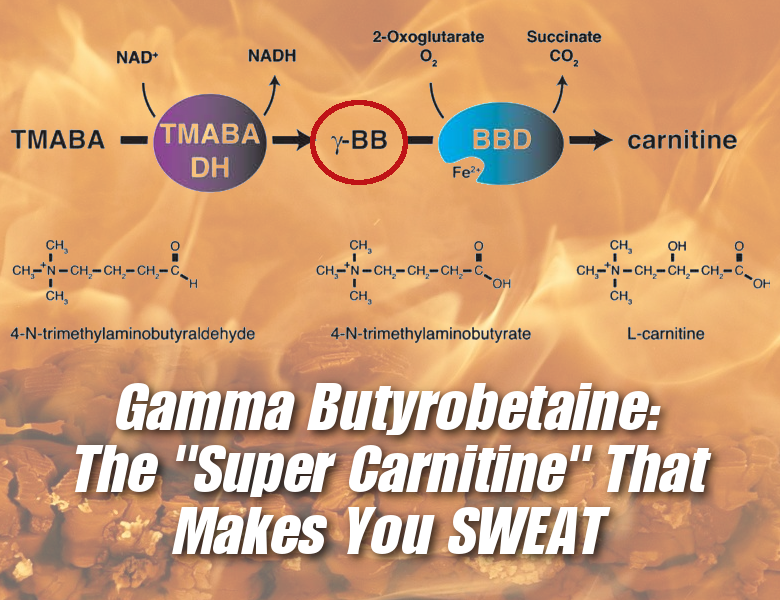 Pro-Carnitine: Studies show that GBB supplementation can increase the body's plasma L-Carnitine levels by nearly double! Thus, its benefits are similar to the benefits of carnitine supplementation, which depend on the user's diet and carnitine status.
Pro-Carnitine: Studies show that GBB supplementation can increase the body's plasma L-Carnitine levels by nearly double! Thus, its benefits are similar to the benefits of carnitine supplementation, which depend on the user's diet and carnitine status.- Thermogenic! For a still-undetermined reason (we have theories), GBB causes a serious amount of thermogenesis and sweating, especially if taken pre-workout, so it's included in many popular thermogenic carnitine liquids, fat burners, and weight loss aids.
- Dosage: The typical dose is 10-20mg twice daily, and right now our conservative daily max is 50mg, although many have gone higher and studies have tested far higher. The higher you go, the more extreme the effects get - 50 milligrams generally provides some serious sweating.
- Featured GBB Supplements: There are several ways to use GBB, so it first depends on your form factor:
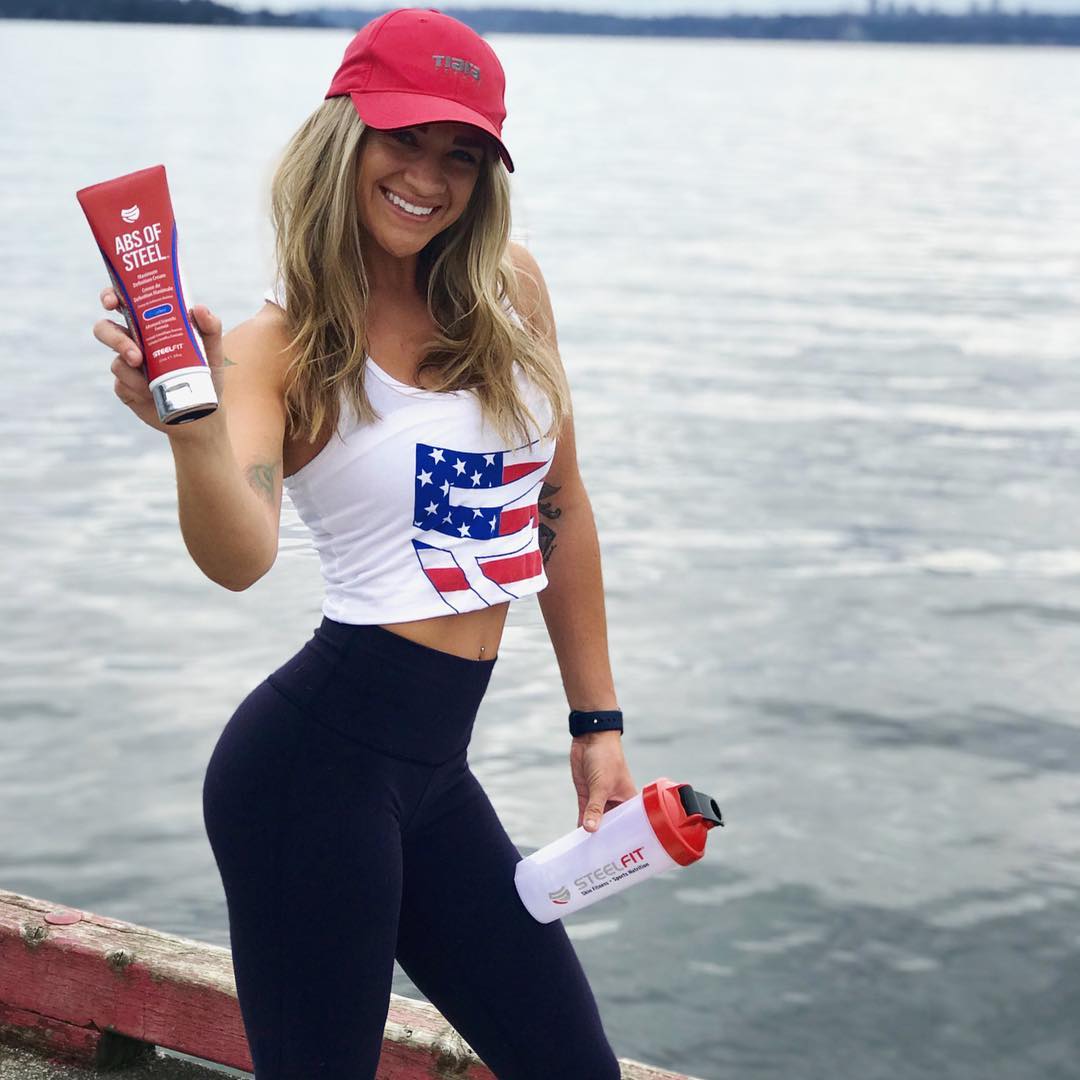 Fat Burning Powder: For a heated, energy-based fat burning drink, we've been incredibly impressed with SteelFit Steel Sweat.
Fat Burning Powder: For a heated, energy-based fat burning drink, we've been incredibly impressed with SteelFit Steel Sweat.- Stimulant-Free Fat Burning Powder: AstroFlav Drip has a perfect 20mg GBB to get the sweat going.
- Trusted Ingredient: We've tested and trusted ProGBB, which is manufactured by SYNMR Biotechnologies. Read more at SYNMR.com (and see the ProGBB lab tests lower on this page)
- Combating Deficiency: New research has shown that individuals with mood disorders are significantly lower in serum GBB. This has been known with L-carnitine, but now we can add GBB to the situation as well.
- Safety: Safety studies even include infants, and GBB is theorized to be safer than carnitine supplements at these doses because there's no chance of it turning into the toxic D-Carnitine isomer, which could potentially be in some poorly-sourced carnitine supplements.
Watch our YouTube video about GBB
You can also follow our video explaining GBB below:
Up-Front: What are the typical GBB "claims"?
The purpose of this post is to educate and investigate the science on GBB, a relatively new soldier on the supplement ingredient chess board. GBB is an ingredient we've seen in numerous fat burners since about 2015. While there are several claims made about the benefits of GBB, brands usually use it as a "sweat amplification" agent, sometimes marketing it for the sweat generated during training sessions.
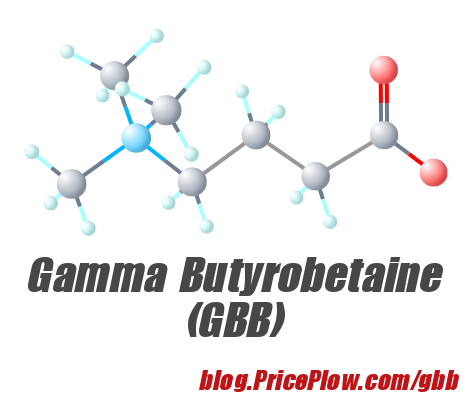
Can as little as 10mg of this ingredient make you work up a sweat faster? For some of us, the answer is very much yes. Head to 25mg or 50mg and you're almost guaranteed to feel it!
A few clinical trials show GBB to be a formidable ingredient for the industry and certain types of dieters. The most impressive amongst these claims is a study showing a near-doubling of plasma carnitine levels after supplementation, and an increase of 300% carnitine excretion.[1,2]
It's often advertised that GBB will function similarly to other carnitine supplements... but the ingredient takes it a step further due to its ability to raise plasma levels so incredibly high.
Further, GBB supports the body's own endogenous carnitine production, so it can be paired with supplemental (exogenous) L-carnitine to cover both angles. This method of combining precursors with the targeted substrate is popular in the supplement industry, since it provides a backstop for those who may have metabolic or absorption issues due to poor gut or liver health.
The recommended dosage of GBB is what sets it apart from other forms of carnitine supplements. While industry veterans like acetyl-l-carnitine (ALCAR) or l-carnitine-l-tartrate (LCLT) typically require doses closer to a gram (and preferably two grams), GBB works similarly to other forms of carnitine in far lower doses like 50mg per day. This is a huge win for GBB, as high doses of other carnitine supplements take up too much space (disadvantageous in a capsule) and simply cost more.
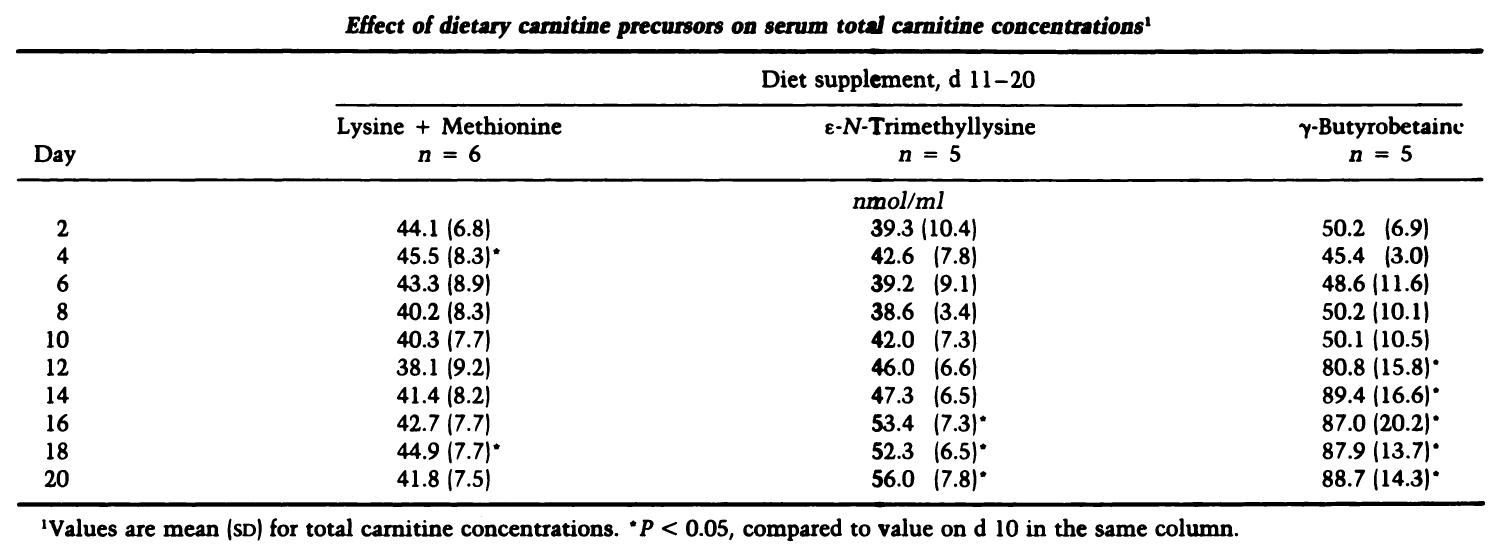
An early study on carnitine's precursors showed that GBB (to the right) is the best of the bunch at increasing plasma carnitine levels.[1]
"Super Carnitine"?
Because of the above data, many companies market GBB as a "super carnitine". It has clinical research backing its safety, a low active dose, and raises carnitine levels in the body higher than other supplements.
However, there wasn't much serious research published online about the ingredient, so we dug up every scientific paper possible on GBB to see if these "super carnitine" claims were true. Here's what we found:
What is GBB?
The story on GBB really starts with the end-goal: more L-carnitine.
Carnitine is a low molecular weight, water-soluble, bioactive amino acid whose L-isomer (L-carnitine) has long been known to participate in the process of lipid metabolism.[3] Its many benefits are covered later in this article, but needless to say, it's conditionally essential -- while the body can generate some of its own, most needs to come from diet or it will not function properly.[4]
Gamma-butyrobetaine (GBB) is a carnitine precursor that eventually gets converted into L-carnitine. GBB is converted to L-carnitine through an enzyme named Gamma-butyrobetaine dioxygenase (also known as BBD or BBOX).[5-7] "GB dioxygenase", as the name implies, is an oxidoreductase enzyme,[8] and these enzymes facilitate conversions through electron movement. This is the final step in endogenous carnitine biosynthesis.
Supporting endogenous carnitine production
Researchers generally claim that 75% of L-carnitine comes from the diet, while the other 25% is synthesized endogenously[9] (this statistic may change based upon diet and we are still working to confirm it). The last step in the endogenous production is conversion from GBB, thanks to support from essential amino acids like lysine and methionine in the brain, kidneys, and liver.[10]
It's that endogenous 25% we're trying to support here. By supplementing with GBB, you provide a "push" for the body to produce more L-carnitine, without forcing customers to eat more red meat, which by far is the best natural source of carnitine.
The rate-limiting precursor?
Research shows that GBB availability in liver and kidneys is arguably the rate-limiting precursor for human carnitine biosynthesis.[1] This is sometimes debated,[7] but the point is that it -- and the BBD/BBOX enzyme -- are at least major limiting factors in endogenous carnitine deficiency. This is much like beta-alanine being the rate-limiting precursor to carnosine production for muscular endurance supplements. It thus makes sense to supplement some, even if carnitine is more orally bioavailable than carnosine, which necessitates precursors to a greater extent.
Utilizing Iron-dependent enzymes
It's worth noting, however, that BBOX and other enzymes in the carnitine biosynthesis pathway are iron-dependent,[6,11] so if GBB is being used as a "red meat workaround" for vegans, it may not work if they are iron-deficient due to not eating enough red meat.
To understand why it pushes the body to produce more L-carnitine, we require some basic general chemistry. Chemical reactions tend to behave according to Le Chatelier's principle. Le Chatelier's principle is a law of equilibrium[12] -- the body wants to maintain balance.
The GBB / L-Carnitine Equilibrium
When you add more GBB to the system, you get more carnitine until the levels of both product and reagent balance out. Likewise, if we have more product, enzymes can either downregulate to stop the production of more product, or even facilitate the breakdown of product into its constituent parts: more reagents. This allows the body to do its best to never have too much of any one thing. While it is never quite this simple in nature, it's the easiest way to think of such reactions.

GBB gets converted to carnitine, and vice-versa, until the two compounds reach chemical equilibrium. Excess GBB gets turned into excess carnitine – excess carnitine can potentially get turned back towards GBB.
The pathway images in this article are more detailed than the above simple graphic, but the point is that your body will do its best to maintain homeostasis and that this reaction can go in both directions.
GBB supplementation works based on these principles. We add so much material to the left that the reaction goes to the right. It creates more carnitine to balance out the ratio of GBB and l-carnitine in the body. Tyrosine supplementation also works by helping conversion reactions move to the product side. This is why it's easier to refer to GBB as a "pro-carnitine" ingredient.
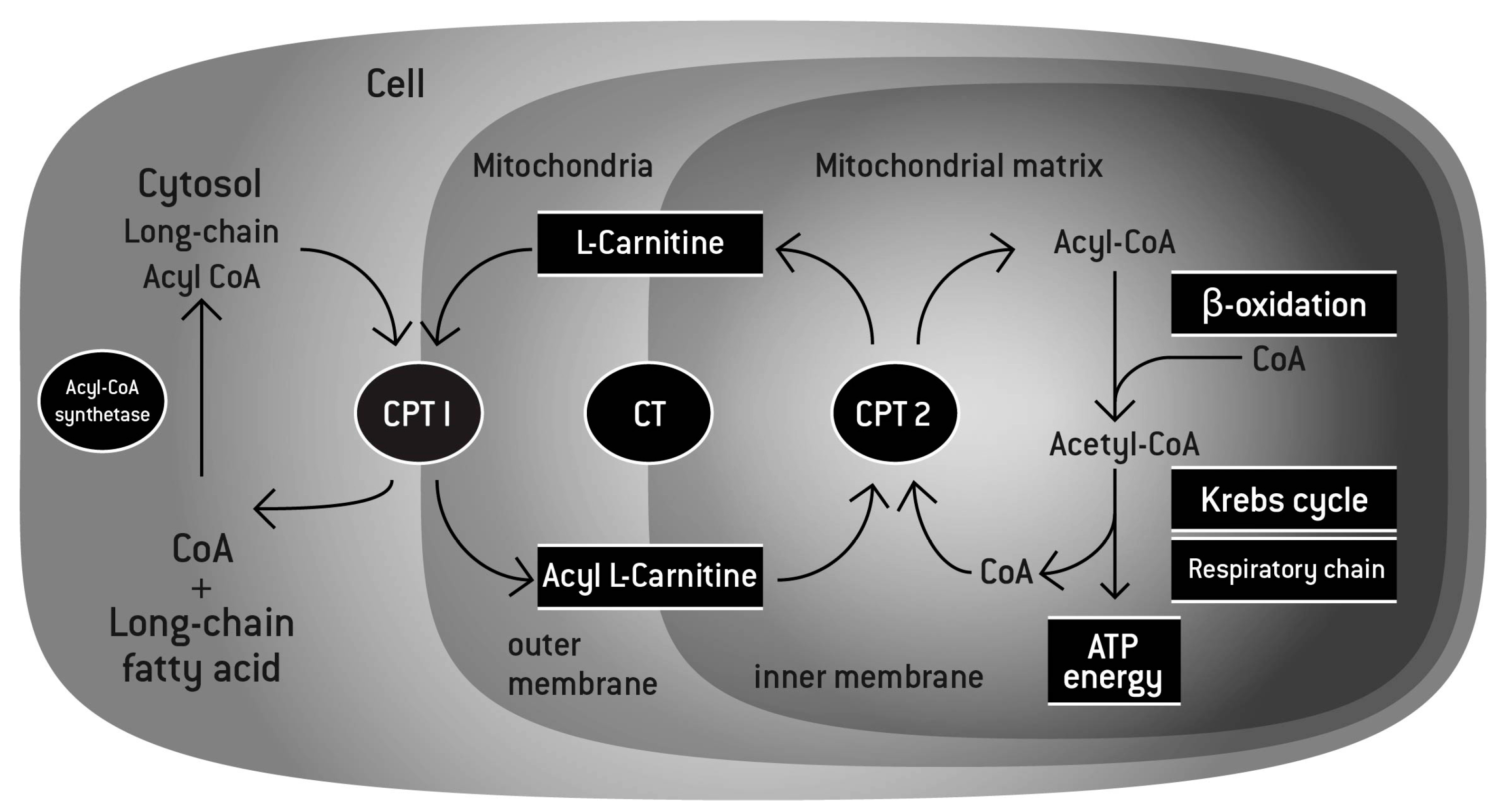
"L-carnitine function. l-carnitine shuttles long-chain fatty acids inside the mitochondria by forming a long chain acetylcarnitine ester. The complex is then transported into the mitochondrial matrix by carnitine palmitoyltransferase I (CPT I) and carnitine palmitoyltransferase II (CPT II). The fatty acids are then broken down through the process of β-oxidation to deliver the 2-carbon molecules to the Krebs cycle, leading to the generation of energy under the form of adenosine triphosphate (ATP). In addition, by binding an acetyl group, l-carnitine can maintain the levels of Acetyl-CoA and coenzyme A, playing its buffering role."[13]
The enzyme for GBB conversion to carnitine is commonly found in the kidney, liver, and the brain,[14-16] with significantly more activity in the kidney.[16] Given the roles of the kidney and liver in fat metabolism, having GBB dioxygenase in these organs makes sense. Carnitine serves an essential role in fat metabolism that will be discussed more below.
Inversely, giving a BBD/BBOX inhibitor will reduce carnitine levels in cells, and by as much as 70%![6] Here, we're obviously trying to avoid that, but it goes to show how critical this pathway is.
This article assumes you already understand carnitine's benefits. If you don't, you can skip down to the carnitine section, but for everyone else, let's continue to the GBB research:
The leading GBB researcher is Charles J Rebouche, of the Neuromuscular Research Laboratory and Department of Neurology, Mayo Foundation, Rochester, MN. The primary research was conducted in his lab after his team showed that GBB successfully increased L-carnitine concentrations in rodents.[17] But it's the human study where things get wild:
-
A sweaty situation!
The reason many readers are here is because GBB makes most athletes sweat far more than normal. This is often the main selling point, as some of us love to sweat when training.
The most commonly-cited research study about the usage of GBB was published in 1989, where 16 participants were given various carnitine precursors for 10 days, after being given a lower-carnitine (no red meat) diet for 10 days beforehand.[1]
The carnitine precursors given were one of the following:
- L-methionine + L-lysine (6 participants, 75mg/kg each)
- ε-N-trimethyllysine (TML) (5 participants, 75mg/kg)
- GBB (75mg/kg, reduced down to 36.5mg/kg)
Right off the bat, we know that the GBB group got a ridiculously high dose! We generally max out at 50 milligrams -- a standard 175lb man would have received a 6 gram dose, which was then reduced to 3 grams.[1] That starting dose is over 100x what we normally see in the dietary supplement world!
Why did they reduce the dosage? You can only guess:
Participant 12 received 75mg γ-butyrobetaine/(kg body wt-d). The solid inner salt was dissolved in fruit juice or carbonated beverage and consumed in two equal amounts daily at breakfast and dinner.
Because participant 12 complained of excessive sweating and salivation 1-3 h after ingestion of the γ-butyrobetaine supplement, the dosage was reduced to 37.5 mg/(kg body wt-d) for participants 13-16. Only one of these subjects reported any unusual effects (mild increase in sweating on d 11-13) with that dosage of the supplement.[1]
Those are some wild doses, but they did lead to incredibly increased serum carnitine concentrations: a 60-78% lift![1] This was by far more than any other carnitine precursor.
This study also showed that the BBD/BBOX enzyme is likely not the rate-limiter -- the enzyme works plenty fine, so long as there's enough GBB to satisfy it.
With regards to the sweating, however, the scientists don't dig any deeper and fail to suggest a reason why that may have happened. We've seen no explanation why this sweating effect occurs, but it's certainly incredibly effective at doing so. You can also rest assured that no dietary supplement is going anywhere near what those subjects were taking in the above study.
While the carnitine levels doubled from GBB, the excretion was 30x higher, meaning there's all kinds of carnitine turnover with GBB![1]
One postulation of ours is that the chemical reaction to get from GBB to Carnitine is exothermic (releases heat), and by triggering the reaction en masse via supplementation, it theoretically outputs the heat. Alternatively, we've wondered if this is a chemically-induced version of the "meat sweats", for those of you who've had such an experience (which is normally blamed on the higher thermic effect of protein).
If we stumble upon an explanation that's based in actual science, we'll update this article.
So if that's not enough for the more conservative-minded folks who need to know every mechanism about every ingredient they take, then they may need to wait until more research is done.
-
GBB leads to nitric oxide enhancement
Another unique aspect of GBB is its consistent impact on nitric oxide levels.[18] At least a few studies have shown GBB to be a potent vasodilator, but it may require higher doses than most individuals are willing to take.
The sports supplement industry is loaded full of nitric oxide supplements that improve blood flow and workout capacity, and this is another ingredient worth exploring for the right situation. By improving blood flow through increased vasodilation, GBB may help get nutrients to damaged muscle and joint tissues at a more rapid rate. It may even help keep blood pressure down. GBB has been more consistent in terms of vasodilation than other forms of carnitine.[18]
-
Poor carnitine precursor availability leads to lower carnitine concentrations
Research on pregnant women has repeatedly shown that carnitine concentrations decrease during gestation, even when dietary intake of carnitine increases. This was not understood until researchers began studying precursors, and they found that low plasma concentrations of GBB were related to the lower plasma concentrations of carnitine.[19]
While we never recommend dietary supplement experimentation in pregnant women, and always recommend speaking to a doctor before beginning any new diet or supplementation program, this is very strong evidence that GBB is critically important to overall carnitine levels in normal adults.
-
Reduces fatty liver in mice
A very promising study published in 2010 showed that high intravenous 50 mg/kg doses of GBB (γ-butyrobetaine) reduced liver concentrations of free fatty acids in mice with juvenile visceral steatosis.[20]
What really impressed the researchers is that GBB can be taken up into the liver and transformed into L-carnitine,[20] and in cases where carnitine transporters are defective, this can make a massive difference!
They conclude with the following:
Consequently, administration of γ-butyrobetaine may be more useful than that of L-carnitine itself for treatment of primary deficiency of carnitine due to a functional defect of the carnitine transporter.[20]
Even though it's an animal model with intravenous use, that's still a powerful conclusion, and worth considering for the appropriate user.
-
Reduced in people with mood disorders
After reading a new review based upon 100 citations,[13] we are finding fewer and fewer reasons not to take ~2g L-Carnitine each day.
There's a well-studied connection between the progression of mood disorders and the severity of carnitine deficiency.[21] There's additionally a lot of research showing various forms of L-carnitine supporting these mood disorders.[22]
Unsurprisingly, GBB levels are also lower in patients with depressive disorders.[23] There isn't much to infer from this knowledge -- it's unclear if mood disorders deplete GBB, or if low GBB causes lower mood, or if it's a random association with no real connection.
With that said, it's still worth knowing about this potential connection. If one's mood is low, a first line of defense is to dramatically increase red meat consumption and find ways to boost carnitine stores -- the best studies seem to use the acetyl L-carnitine form.[22] Can GBB help? We'd love to find out - we don't think it's a terrible idea to try.
GBB and Safety: Safer due to no D-Carnitine?
Whenever a new supplement storms onto the scene, we go directly to studies that advocate for its safety. In this matter, we won't lie -- GBB took us by surprise. They studied GBB in human infants and determined GBB to be safe to take.[2]
Given that infants may be the most sensitive test subjects around, we can logically say GBB supplementation is probably safe for adults,[2] although we'd always welcome more toxicology research.
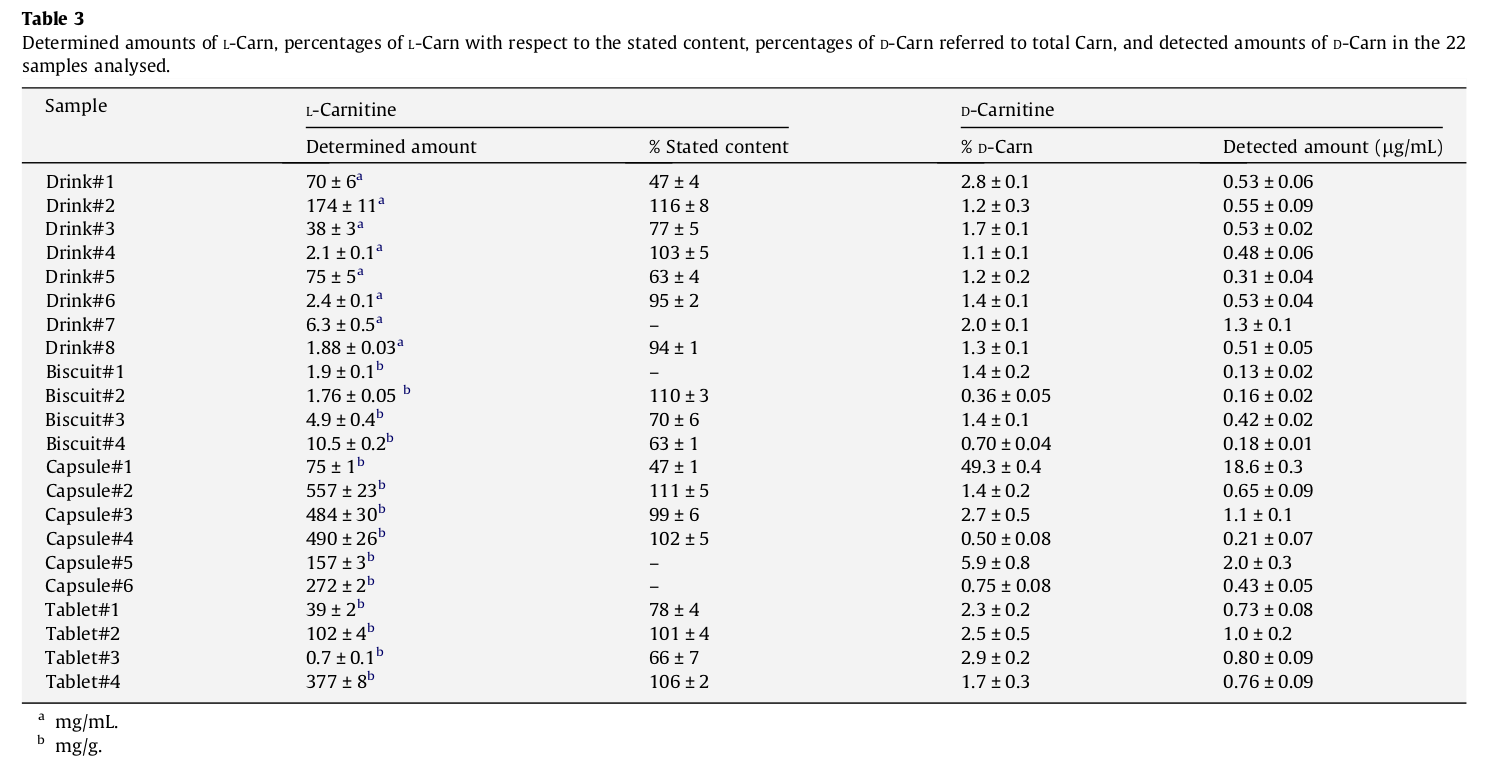
This study found freakin D-Carnitine heavily dosed in one supplement. Whose was it? We'll probably never know. But it could be avoided with third-party lab testing, simply eating more meat, or having your body create the carnitine itself... with GBB.
In fact, some GBB manufacturers claim that GBB is safer than many carnitine supplements! While that must be taken with a grain of salt, they argue that there's a problem with carnitine suppliers providing carnitine that may contain the D-carnitine enantiomer of L-carnitine.[24] D-carnitine is toxic in humans and mammals,[25] as it may reduce your body's stores of carnitine and induce a deficiency![17,26]
GBB can claim superiority in a few other realms beyond safety. Science has associated L-carnitine supplementation with gastric distress in high doses.[27-29] Anecdotal reviews concur. Since the dose of GBB is often much lower than other forms, it likely can circumvent this unfortunate side effect. Carnitine suffers from a poor bioavailability as the body may use only 18% of the dose.[30] While we have seen little data on the bioavailability of oral GBB, we're hoping it's better than 18%!
GBB Dosage
Despite what the researchers put those poor subjects through in 1989 with massive doses, the standard reasonable dosage is roughly 10-25mg twice daily, or 25-50mg in one shot. Lower doses will likely still yield benefits, they just may not be "felt", while higher doses may work but may induce too much thermogenesis for some individuals.
We generally don't go for doses over 50mg per day right now... we know that more is safer, but the effect is quite pronounced for us at that point. Everyone's experiences var.
Note, however, that the infant study used "500 µM γ-butyrobetaine",[2] with 500 micromolar = 0.0005 moles, and GBB's molar mass is 146.2074 g/mol. This then equates to 73 milligrams of GBB on the infants! Obviously we don't suggest this, but we do acknowledge that adults can definitely handle more than 50 milligrams.
In the other study, this happened at very high doses:
Participant 12 received 75 mg "y-butyrobetaine/(kg body wt-d). The solid inner salt was dissolved in fruit juice or carbonated beverage and consumed in two equal amounts daily at breakfast and dinner. Because participant 12 complained of excessive sweating and salivation 1-3 h after ingestion of the -y-butyrobetaine supplement, the dosage was reduced to 37.5 mg/(kg body wt-d) for participants 13-16. Only one of these subjects reported any unusual effects (mild increase in sweating on d 11-13) with that dosage of the supplement.[1]
It goes without saying that we don't suggest such astronomical doses (37.5mg/kg is nearly a 3g dose), but it's interesting to see that the researchers even bring up the excessive sweat and salivation!
Who's the preferred GBB raw material supplier?

Looking for trusted, lab-tested GBB? Then it's SYNMR's ProGBB! See more info at ProGBB.com
There are a few raw material ingredient suppliers providing GBB, but none have shown us the level of detail and lab testing of ProGBB, made by SYNMR Biotechnologies.
We were clued into ProGBB when investigating new fat burning powder ingredients. SYNMR agreed to share their lab tests, which reveal some great information:
ProGBB Lab Tests and Documentation
Four PDFs here tell an interesting story:
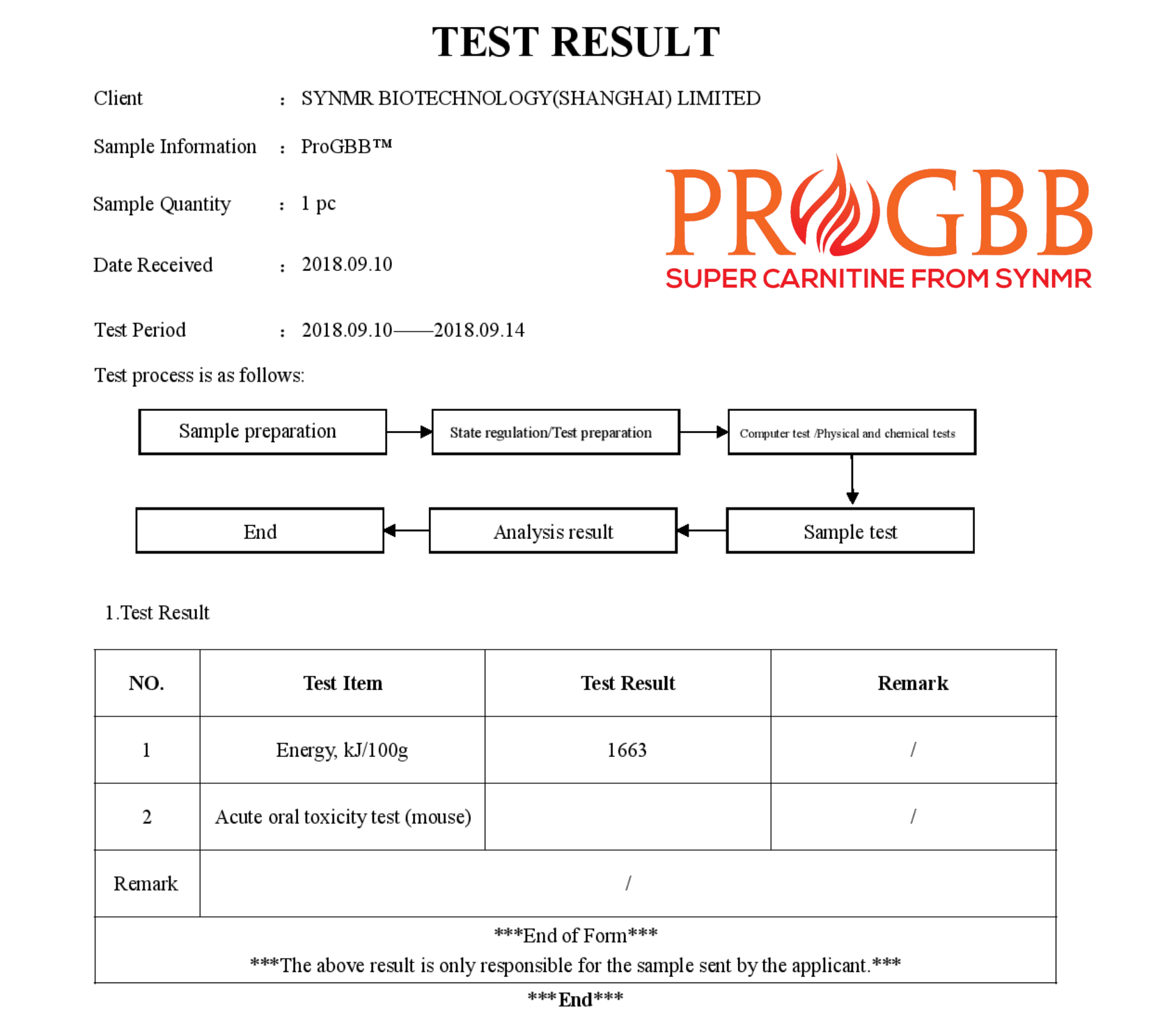
Interesting: Measure enough GBB (at doses we don't recommend taking at once), and you get some energy from calories. This has been proven for amino acids like BCAAs too.
- ProGBB Specifications
- ProGBB COA (Certificate of Analysis)
- ProGBB Energy Testing
- ProGBB TSCA Testing
We learn some interesting things from the documents above, such as the fact that large quantities of GBB has calories (of course, we'd never take so much as to get any level of usable energy from it). In addition, very high doses did not cause rat toxicity, but in extremely high doses, they do. All of the doses tested are so far beyond what's used in human supplements that we do not have concerns.
You can learn more and contact them by heading to SYNMR.com.
Now, why are we here in the first place? For the carnitine. Let's quickly go through some of the benefits, and why GBB matters:
Featured Supplements with GBB inside
So what are our favorite supplements with GBB inside? Since there's so many ways to take it -- from pills to powders to even topical creams -- you have a great selection.
Let's break it down:
-
AstroFlav Drip
AstroFlav, a brand known for their out of this world flavors, updated their stimulant-free fat burning supplement named Drip in 2023.
AstroFlav DRIP – Deals and Price Drop Alerts
Get Price Alerts
No spam, no scams.
Disclosure: PricePlow relies on pricing from stores with which we have a business relationship. We work hard to keep pricing current, but you may find a better offer.
Posts are sponsored in part by the retailers and/or brands listed on this page.
Note: In the price listings above, make sure you get the newer 2023 version with GBB.
-
SteelFit Steel Sweat
If you're crazy about heat, this label is loaded with thermogenic ingredients... but we're definitely not recommending a full serving to newcomers right off the bat!
Take a look at this beast - it has nearly every heated ingredient we know -- including GBB -- but not too much caffeine!
SteelFit Steel Sweat – Deals and Price Drop Alerts
Get Price Alerts
No spam, no scams.
Disclosure: PricePlow relies on pricing from stores with which we have a business relationship. We work hard to keep pricing current, but you may find a better offer.
Posts are sponsored in part by the retailers and/or brands listed on this page.
A Brush Up on Carnitine Itself
Carnitine is the molecule that facilitates movements of fatty acids during beta-oxidation, the process that lets us get energy from fats.[7] It's easy to visualize carnitine as a "fatty acid taxi cab" that takes the fatty acids to different spots within the mitochondria (the powerhouse of the cell).[31] Once the fatty acids are dropped off by carnitine, they are converted into ATP through beta-oxidation. This process is going on constantly throughout the day but elevates during intensive exercise as fatty acids are burned for fuel.
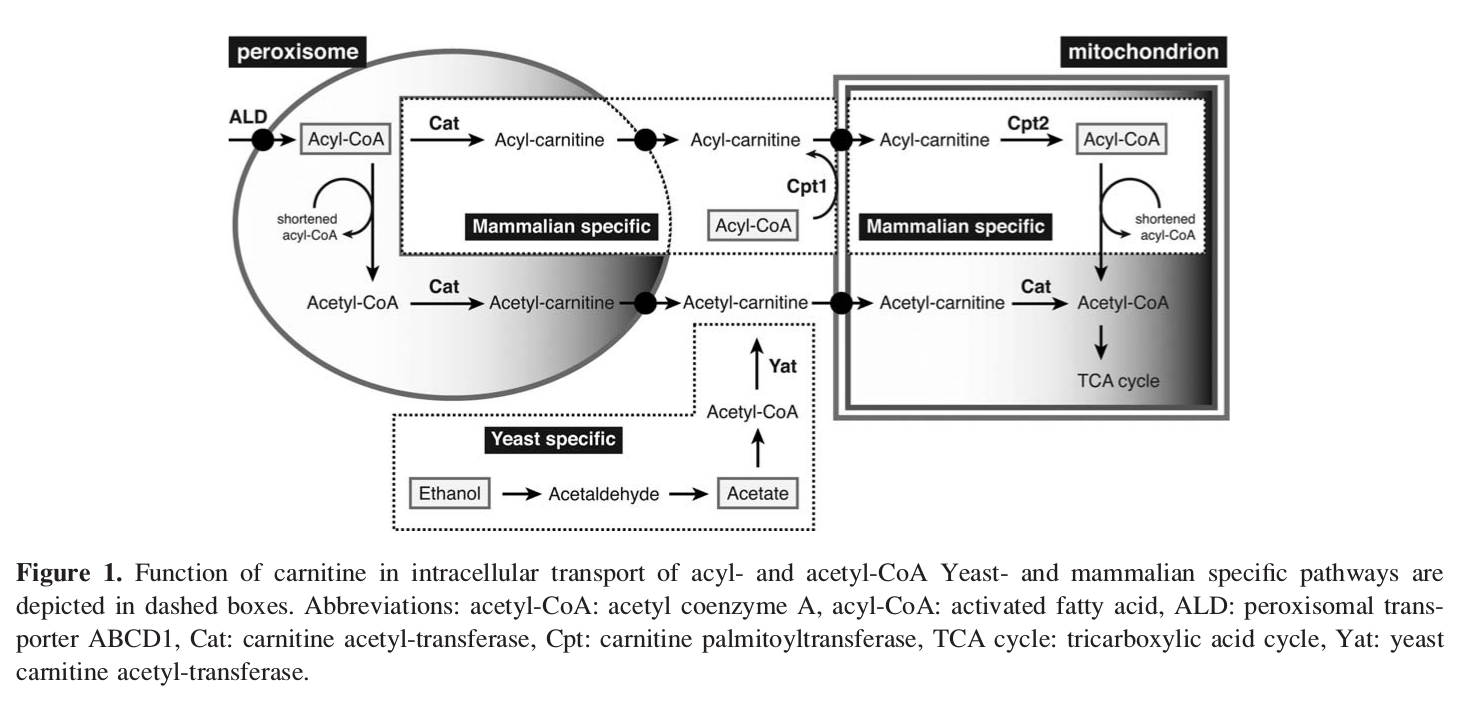
Carnitine's Function in Intracellular Transport.[5] Note how important this molecule is if you plan on delivering fatty acids to cells. You can ignore the bottom yeast section.
Thus, it may make sense to take some before a workout: more taxis going to the destination means more guests will arrive, correct?
This is where GBB should also kick in, beyond its thermogenic effects. By providing enough GBB, we allow the body to "push" the conversion reaction and get more carnitine in serum. If we have more carnitine, we can transport more fatty acids into the mitochondria to burn as fuel.
What does having more carnitine do?
Let's finally get to the crux of our pursuit: does carnitine supplementation really do anything? The short answer is that carnitine has several benefits it can impart through proper supplementation, especially in those that are deficient. Carnitine is likely best known for improving brain health, as it improves focus, memory formation, and even the ability of the brain to resist disease or degradation.[32-34]
Vegan? Vegetarian? Aging? Then read up
Carnitine really shines for fat loss in those that are deficient. Vegans, vegetarians, and boomers should all consider giving carnitine a shot as supplementation is associated with improved fat oxidation (through its natural mechanism) and even enhanced intra-set recovery.[35] It may even help the deficient hold on to muscle mass more efficiently as these demographics age.[36,37]
General health, fertility, and more
In terms of general health, more carnitine is quite often a very good thing. Carnitine has been long-used to improve sperm quality,[38] and since first publishing this article, more data has come out demonstrating how powerful carnitine is for fertility in both men and women.[39] Additionally, it functions as a potent antioxidant.[40]
It contributes to metabolic flexibility,[41] and helps keep glucose levels down in the body while improving insulin sensitivity.[42] It may even be worth trying when treating symptoms of autism and ADHD![43,44]
The carnitine deficiency downfall
The above benefits are only the most clear. There's an uncountable number of things that can go wrong when the body can't mobilize fat due to a carnitine deficiency, so there's nearly as many things that it may improve in some form when you correct such a deficiency. Because of this, it's tough to make claims about how it will specifically help you, but we can confidently say that "being carnitine deficient is a decidedly bad thing".
So yes, GBB will probably do something by virtue of improving carnitine levels in the blood. Carnitine itself is a very well studied compound -- the biggest differences with GBB are the method of increment, the dose, and the thermogenic effect. While we lose out on the versatility of other forms of carnitine, like acetyl l-carnitine's ability to cross the blood-brain barrier, we make up for it with a lower and more tolerable dose with some additional "fringe" benefits.
Conclusion: An experiential way to boost carnitine
Well, one of our favorite supplement categories has just gotten a whole lot more interesting.
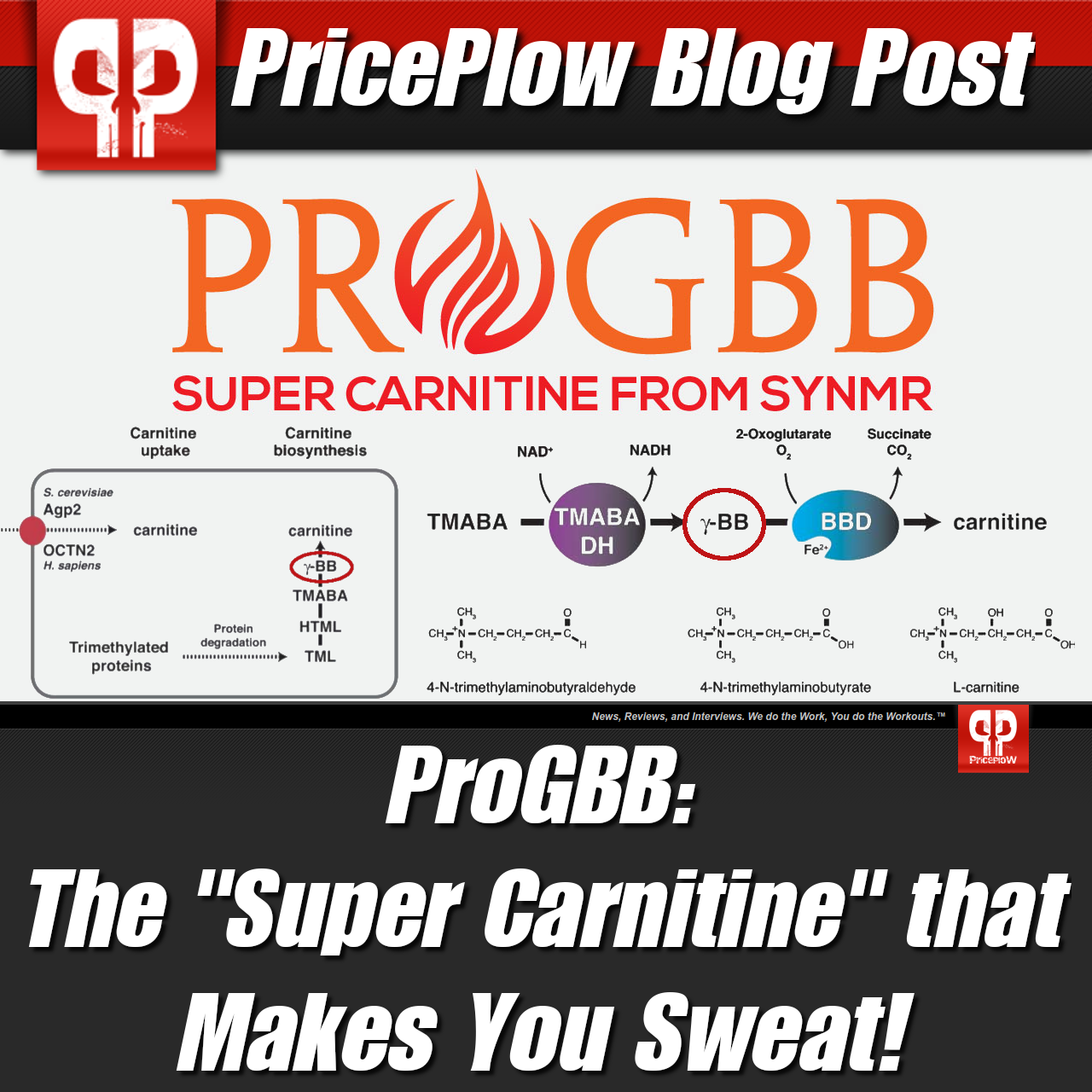
SYNMR's ProGBB is a well-tested form of the carnitine-booster Gamma Butyrobetaine Ethyl Ester, more easily known as GBB. SYNMR was the sponsor of the 2024 updates to this article.
Here at PricePlow, we love carnitine - especially for the right consumer who needs it most. Like creatine, it's just one of those ingredients with too much data to ignore. It's not necessarily needed by heavy red meat eaters, but we definitely enjoy it when leaning out.
GBB is a worthy addition to the "carnitine wars", and has its place in several types of products - especially capsule-based thermogenic fat burners that can use it instead of larger doses of L-carnitine. And for those who suffer GI distress from carnitine, GBB is an alternate way to go. It's also great for those trying to keep the pills, powders, or liquids at a minimum.
However, acetyl L-carnitine (ALCAR) is likely still better for cognitive benefits due to its ability to cross the blood-brain barrier, but the 2024 research showing lower levels of GBB in depressed individuals is compelling.[23] In terms of carnitine production for vegans, vegetarians, meat-haters, the aging, and other dieters, GBB is a great addition to the large stack.
So, is GBB worth it? Depending on the situation, we think it's at least worth trying for a bit.
And if you do choose to use a supplement with GBB inside, don't forget your towel, because you just might be one of the lucky ones who gets the extreme sweat amplification effect.
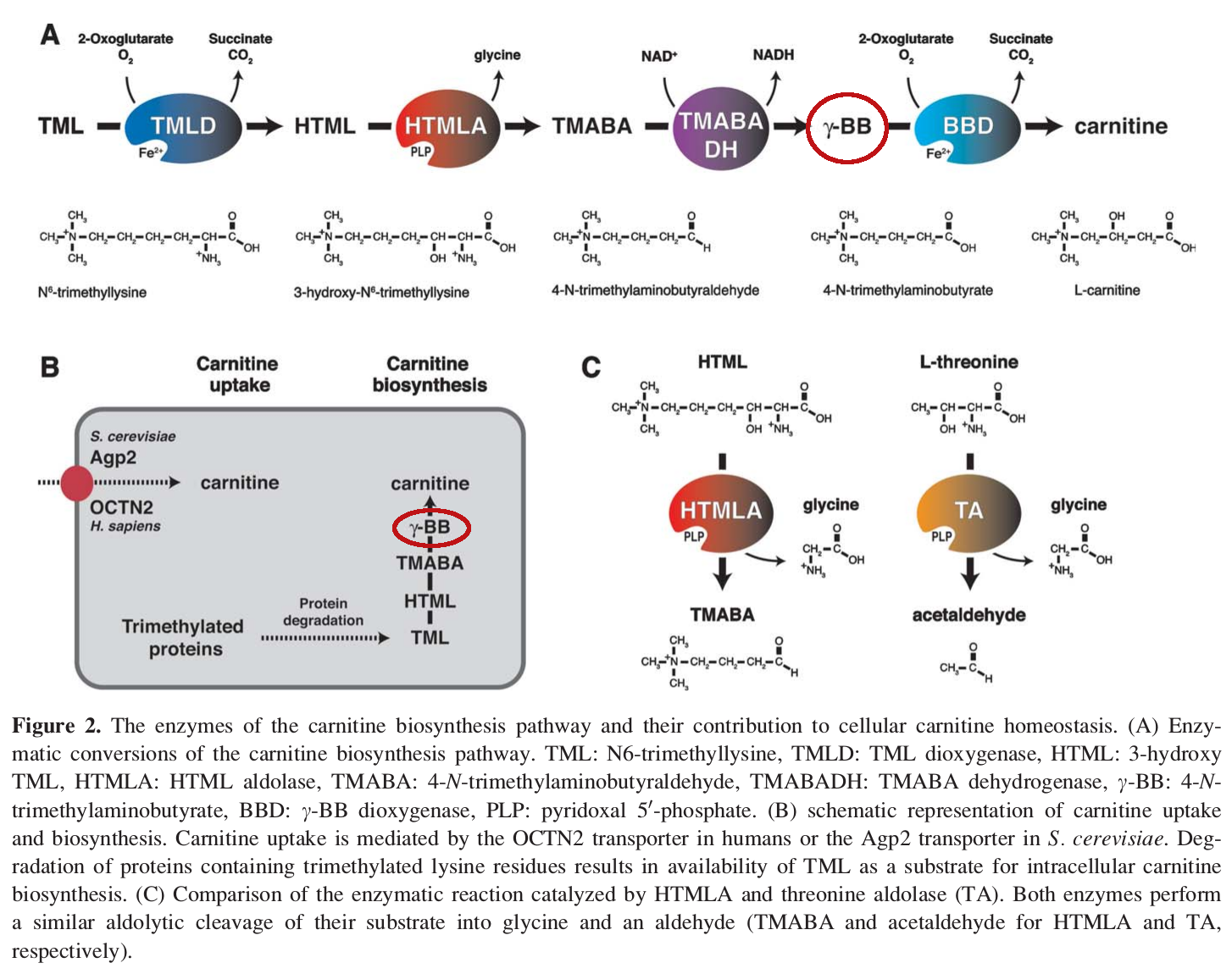
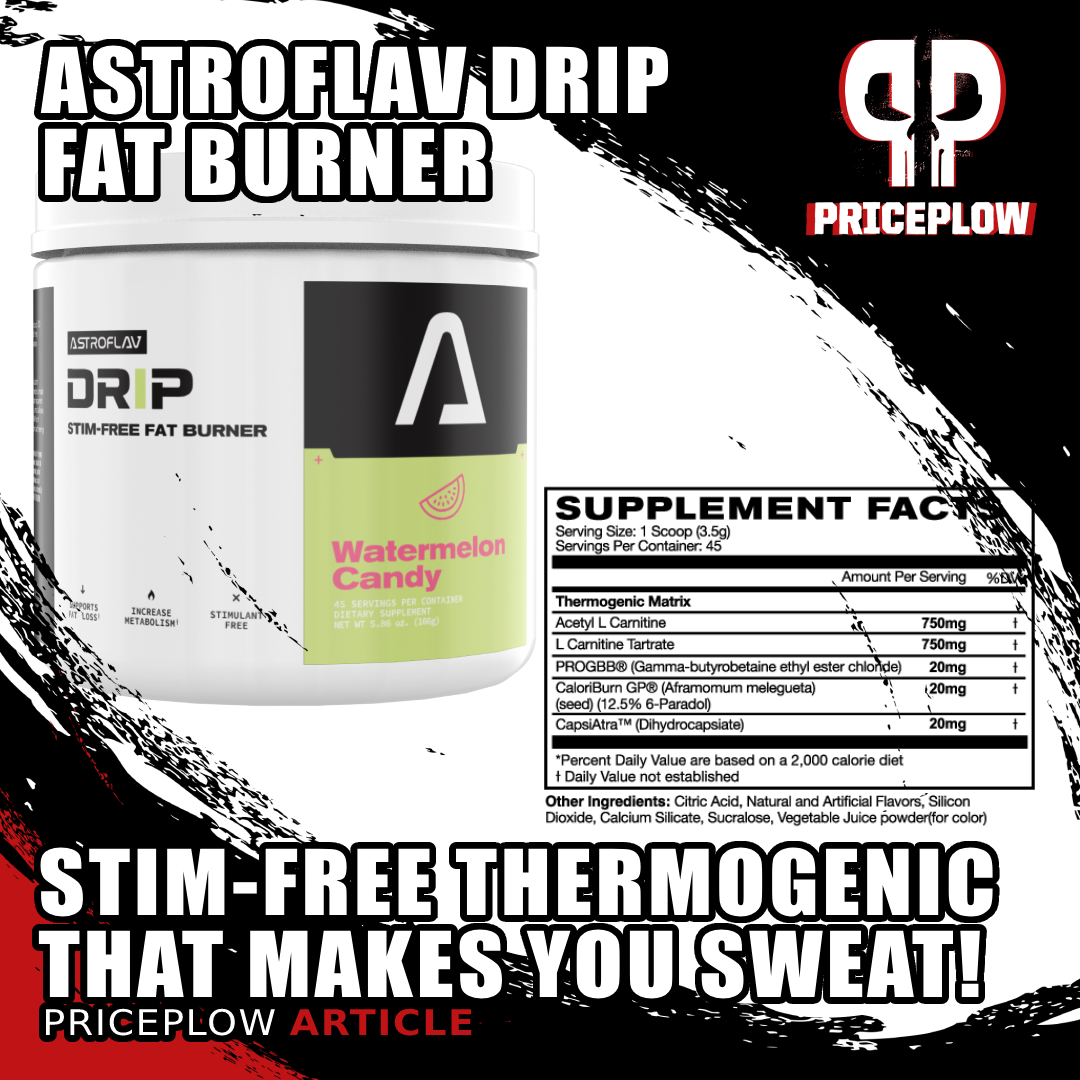
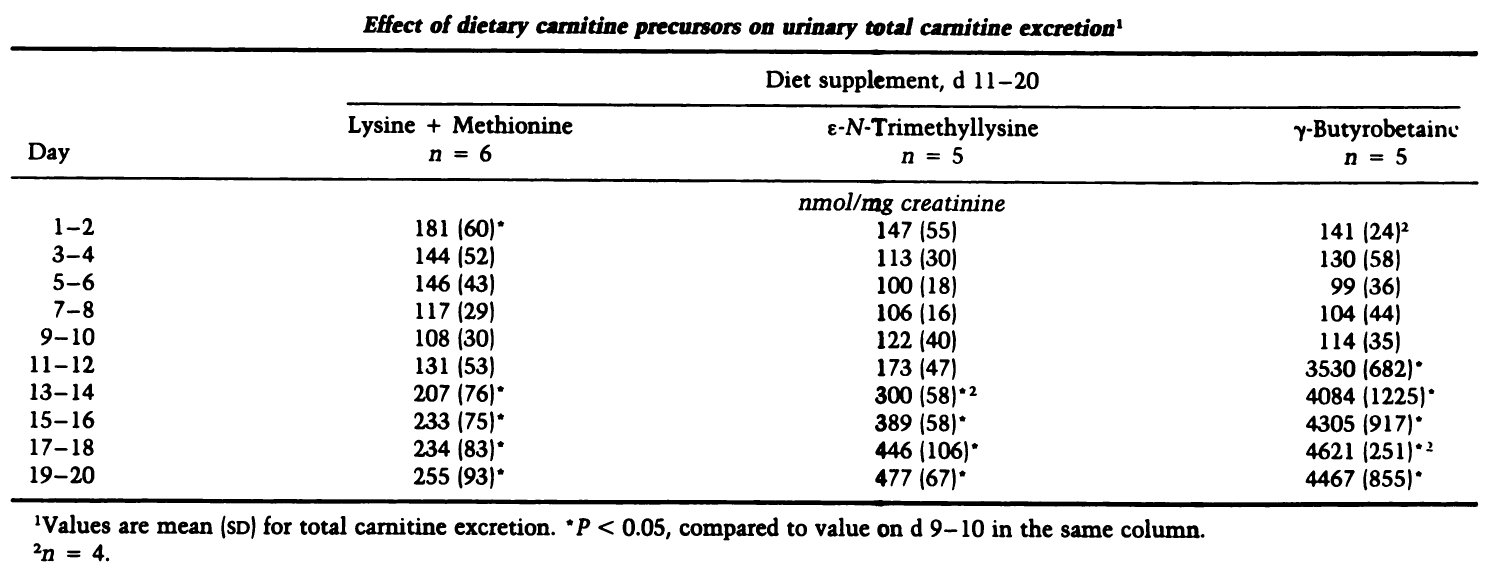
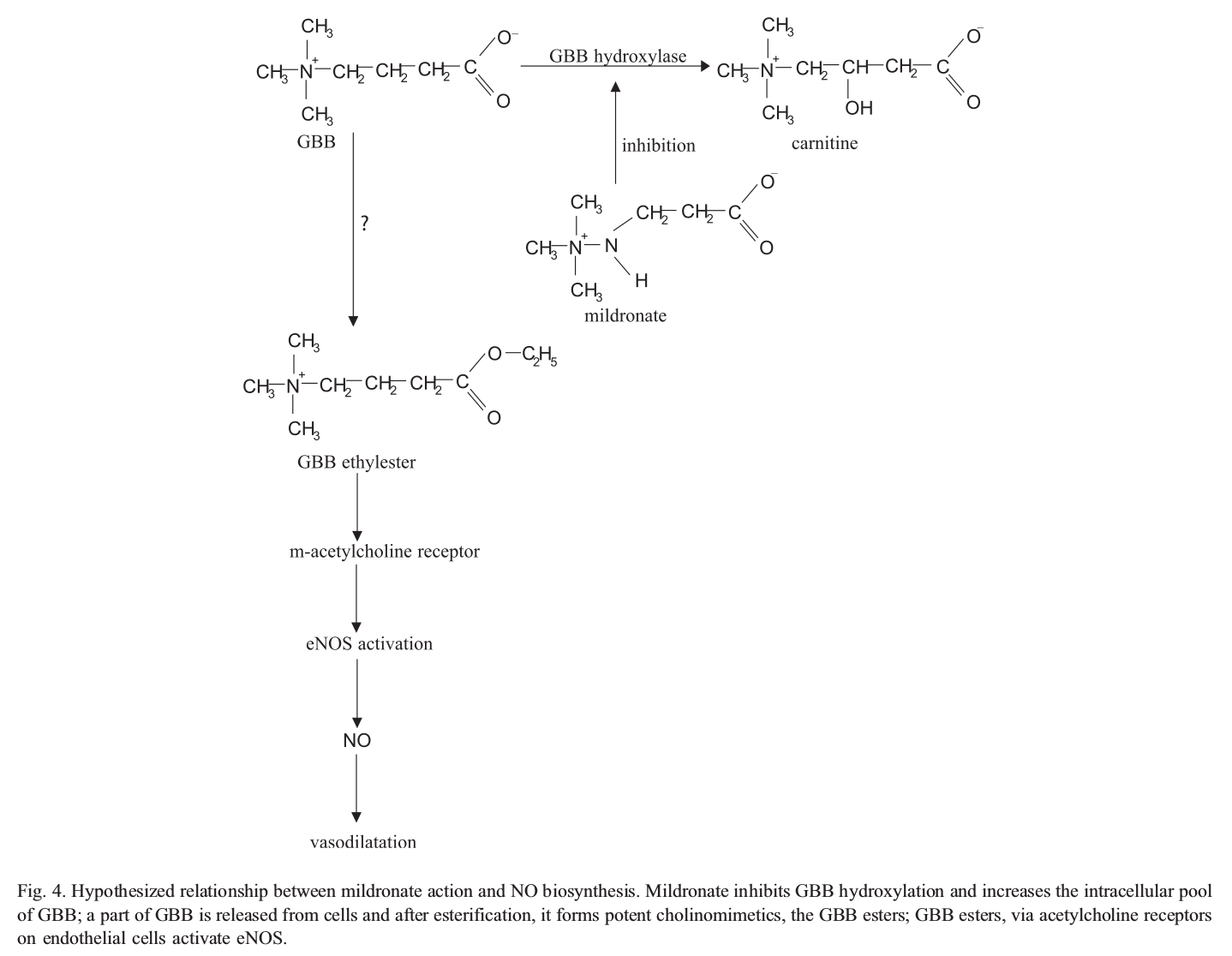
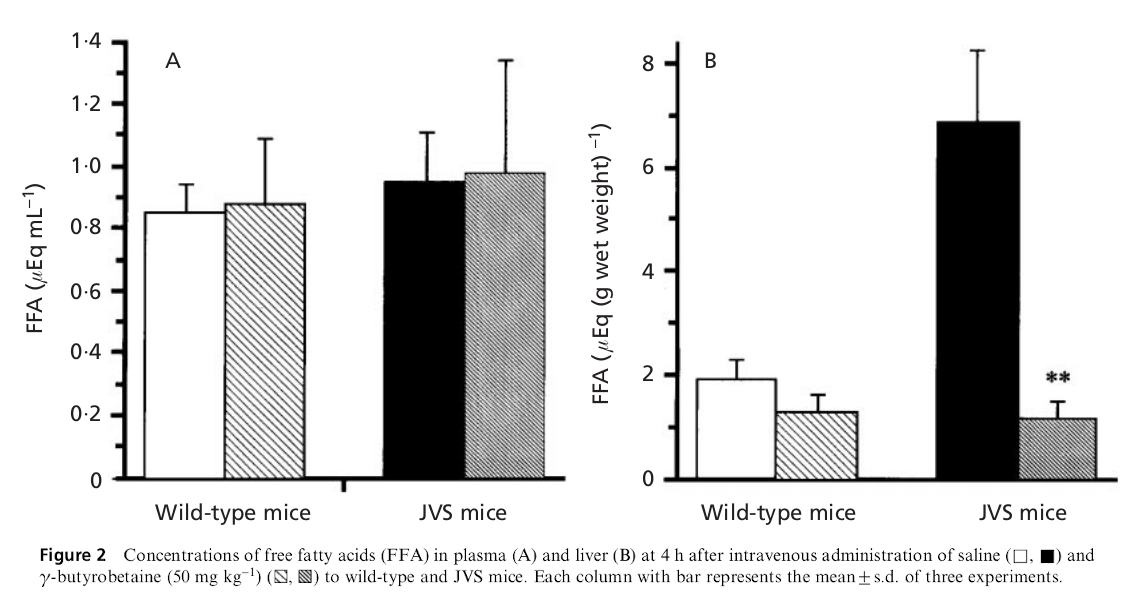

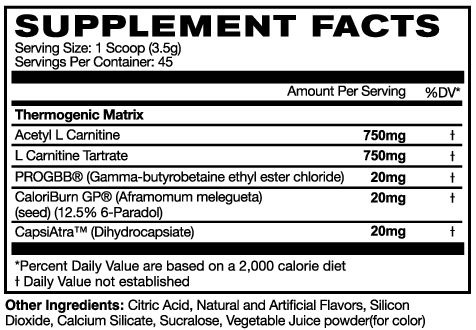
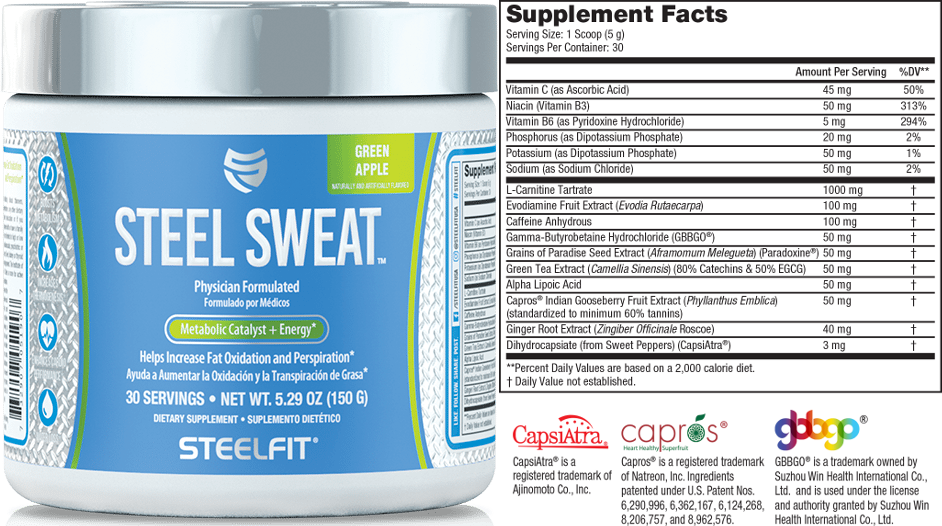
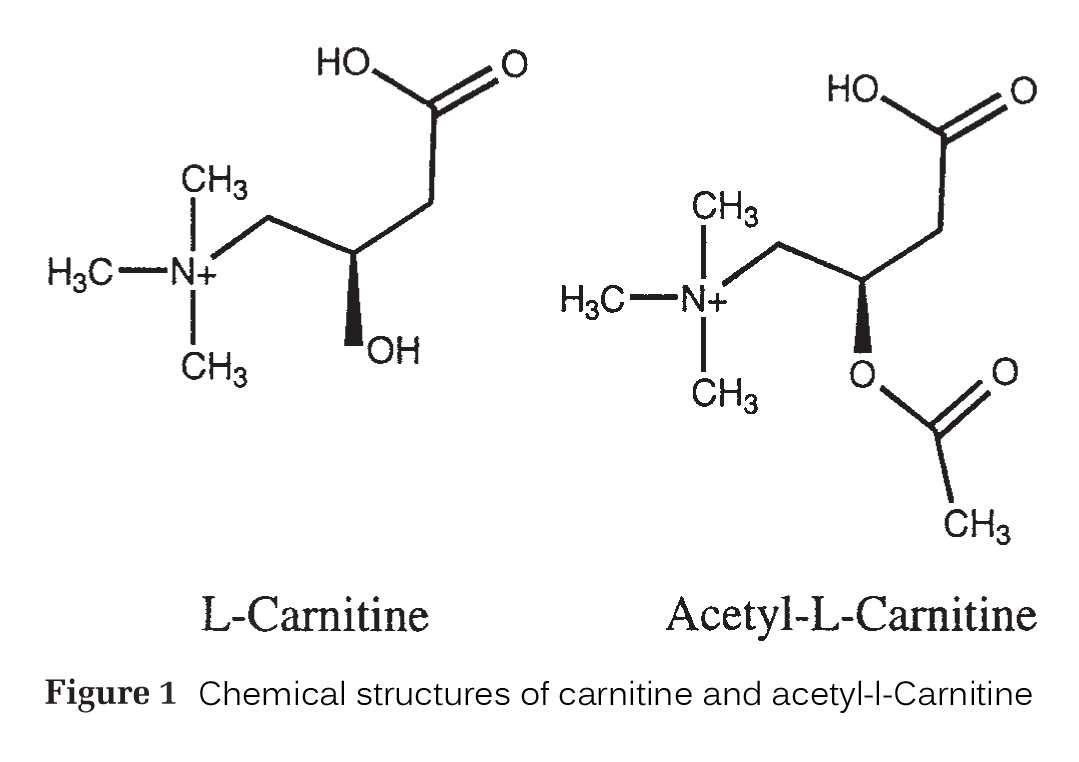


Comments and Discussion (Powered by the PricePlow Forum)